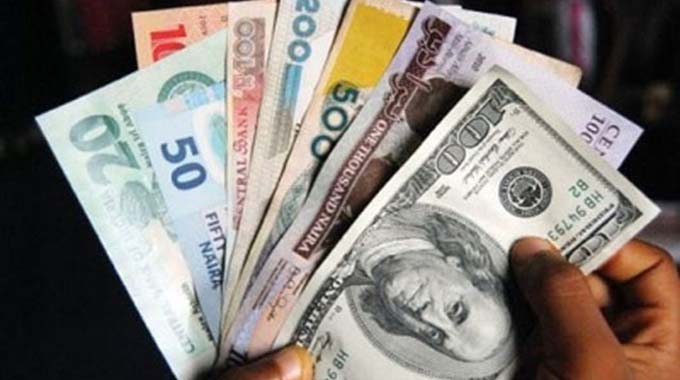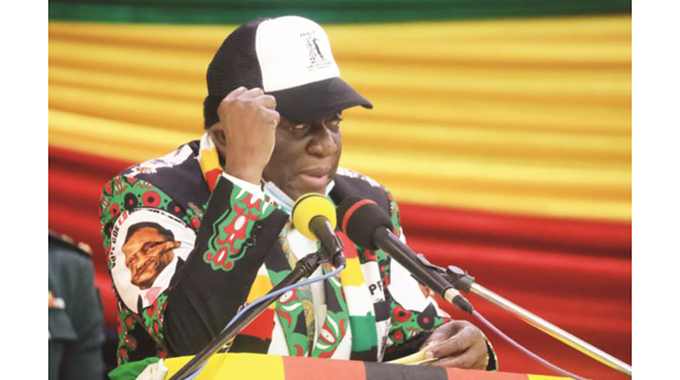EDITORIAL COMMENT: Do more to halt externalisation of forex

Zimbabwe faces two major economic constraints, a shortage of capital that can be committed to investment to speed up the growth of the economy and a shortage of foreign currency that can be used to pay for all the critical imports required to maintain that accelerated growth.
The fact that we are likely to see 7,8 percent growth this year means that we are doing well and that the two shortages are not stifling out growth, but with more capital and more foreign currency reserves we could move ahead even faster.
A fair percentage of the growth is fed by the Government financing expansions in agricultural production and boosting infrastructure. Although there is growth in other sectors, a lot is the result of the growing market, thanks to all those farmers with money in their pockets, and making better use of our industrial capacity.
Chunks of the private sector have been adding to capacity, as we have seen from the growth in bids at the foreign currency auctions for plant and machinery.
This arises from the decision by some to replace worn-out and obsolescent equipment and to expand production by commissioning new machinery. But that process could be accelerated if there was more capital available.
At the same time business sectors have been commenting on just how tight foreign currency is at times.
While the auction system has brought a great deal of stability and functionality into markets, it accounts for just 30 percent of foreign currency transactions with another seven percent within the same ambit being the transfers on the interbank market at auction rates, that is exporters selling some of their retained foreign currency through their bank.
The result of this fairly tight operation is that delays build up at times in the allocation of foreign currency by the Reserve Bank of Zimbabwe to meet the successful bids made at the auction.
This is partly to do with the cyclic nature of our exports, especially tobacco, and partly because the Reserve Bank has only a small fraction of the total foreign currency reserves, with US$1,7 billion plus sitting in nostro accounts owned by private companies and individuals.
A fair amount of heat has been generated by the fact that banks do not, or cannot, use a portion of those vast deposits in normal banking operations.
A sign of the times was the reaction to the US$960 million Zimbabwe received as its share of the latest injection by the International Monetary Fund. The pressure to use at least the foreign currency component of this windfall to sell to importers with the Zimbabwe dollars to buy it has been immense.
Yet we should not be in this position at all. The Zimbabwe Anti-Corruption Commission, putting together all the bits of information it has, reckons that US$1,3 billion a year is being externalised illegally.
That amount of capital feeding investment into productive sectors would certainly make a huge difference and accelerate growth, and that amount of foreign currency, which dwarfs the IMF injection, would certainly end delays in the auction system.
This US$1,3 billion comes from a variety of sources.
Some of it is straightforward corruption, money that is stolen and shipped out, possibly after being converted on the black market and doing dreadful things to that exchange rate which, because the market is small, is particularly susceptible to even small increases in demand and thieves, because they are not using their own money, do not really care too much about costs.
Other portions of the US$1,3 billion at least start off with legal money or legal goods. Some gets out of the country by exporters under-invoicing or importers over-invoicing. The Reserve Bank puts in quite a lot of effort to stop this, but some still leaks and ends up in foreign bank accounts and is no longer accessible by the Zimbabwean investment system or the foreign currency transactions.
There are the eternal complaints of transfer pricing. This is when a large global company uses potentially legal ways of moving its profits to jurisdictions where taxes are low or non-existent by providing goods and services in-house, but supplied from a subsidiary in that low-tax jurisdiction.
In the mining sector around the world in recent decades it has been combated and reduced by charging royalties on volumes. It thus does not matter much how a global giant manipulates its tax burden, it still pays taxes in the countries where it mines, even if those mines, on paper, never make a profit.
A third source of externalisation is smuggling. Some of this is smuggling black market US banknotes. A larger chunk is smuggling items or goods of value, and gold is on top of this list. While the formal gold mining sector is clean, we know that well over half the artisanal gold that is panned and mined does not get sold through the official systems. It is bought by private individuals and smuggled out.
While only two sets of ingots have been caught in recent years, one lot at Robert Gabriel Mugabe International Airport and one lot at OR Tambo International Airport, but with the smuggling operation in Harare caught on camera, it would be silly to bet that a lot of other people were not caught. And some smugglers use land routes.
If all this money that just vanishes into foreign bank accounts, or is even just stashed in foreign trunks, was available in Zimbabwe our already flourishing economy would be seriously blossoming.
ZACC is extremely irritated that some of the countries that criticise corruption in Zimbabwe are quite happy to allow the proceeds to enter their banks, perhaps after being suitably laundered.
Certainly the efforts we have made to get this money back have hardly been covered with the success that a stricter compliance with international rules would have been the result.
We have to stop the cash leaving in the first place. ZACC is tightening up on the stolen money vanishing, by stopping it from being stolen in the first place. The Reserve Bank is now putting in more resources to check on exports and imports. The tax collectors at Zimra are becoming more involved as they hunt down undeclared wealth.
All these efforts need to be intensified and a great deal more effort is needed to hit the smuggling. The other siphons at least leave some records that the authorities can examine and audit to build up their cases, but the smugglers go out of their way to wipe the trail completely clean.
There is no law in Zimbabwe that governs our right to spend at least our taxed cash how we wish, but we should be able to do better to see if some large sums are not being moved from legal holdings to illegal activity, everything from drug dealing to buying gold in dark corners.
The result we desire is that the thieving stops, and the legal money stays in Zimbabwe to be put to work to create ever more legal money as it funds investment and growth.
People who buy gold or black market dollars to smuggle out should be building factories instead and becoming even richer, in their own country.










Comments